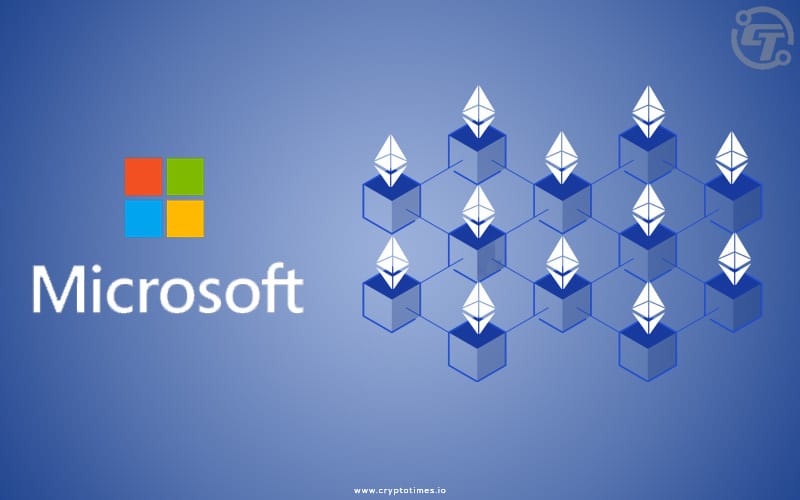In Brief:
- Microsoft is aiming to use the Ethereum blockchain to prevent piracy.
- In 11 the page paper, Microsoft, together with Alibaba and Mellon, laid out the new system’s design, implementation, and evaluation.
Software giant Microsoft is aiming to use the Ethereum blockchain to prevent piracy.
Researchers from Microsoft, Alibaba Group, and Carnegie Mellon University have published a white paper that claims the Ethereum network can help prevent piracy. In 11 page paper, Microsoft, Alibaba, and Mellon laid out the new system’s design, implementation, and evaluation.
Microsoft, the Redmond-based software giant, managed to study a blockchain-based incentive system to enhance anti-piracy campaigns. The paper title: “Argus: A Fully Transparent Incentive System for Anti-piracy Campaigns.”
The paper stated: “We see this as a distributed system problem. In the implementation, we overcome a set of unavoidable obstacles to ensure security despite full transparency.”
Microsoft says Argus will run on a public blockchain in order to allow digital piracy informers to remain anonymous. However, it will also maintain transparency for the wider public at the same time.
“The groundwork of Argus is to formulate the objectives for fully transparent incentive mechanisms which securely and comprehensively consolidate the different interests of all roles,” the researchers write.
Argus will protect the identity of the informers but allow the firm to backtrack the source of the pirated content. It will backtrack the pirated content to the source with a corresponding watermark algorithm.
“This objective form the core of the Argus design, highlighted by our innovations about a sybil-proof incentive function, a commit-and-reveal scheme, and an oblivious transfer scheme,” the white paper authors add.
Also Read: Kakao Launching Blockchain Units in Singapore for its Global Expansion
“With the security and practically of Argus, we hope real-world antipiracy campaigns will be truly effective by shifting to a fully transparent incentive mechanism,” the paper said.
Furthermore, they optimized several cryptographic operations “so that the cost of privacy reporting is reduced to an equivalent cost of sending about 14 ETH-transfer transactions to run on the public Ethereum network, which would otherwise correspond to thousands of transactions.”






